Chaos-hit US sanctions three Iranian entities over election meddling claims
The US administration has imposed sanctions on three Iranian organizations over accusations of running a disinformation campaign targeting the upcoming US presidential election.
The US Treasury Department added on Thursday the Bayan Rasaneh Gostar Institute, the Iranian Islamic Radio and Television Union and International Union of Virtual Media to its sanctions list over what it claimed "brazen attempts" to interfere with the US election and US voters.
The Treasury claimed that the three organizations worked to "sow discord among the voting populace by spreading disinformation online and executing malign influence operations aimed at misleading US voters" ahead of the US presidential election on November 3.
Iran’s Islamic Revolutionary Guard Corps (IRGC) and the IRGC’s Qods Force were also targeted on Thursday by a new round of sanctions on behalf of the US Treasury, which accused them of controlling the three organizations and spreading disinformation in the run-up to the US presidential election.
The sanctions, which forbid Americans and US entities from doing business with the Iranian groups, would have little impact as the IRGC and IRGC-Qods Force have already been subject to such restrictive measures.
In a separate development on Thursday, the US Treasury Department also imposed sanctions against Iranian Ambassador to Baghdad Iraj Masjedi, alleging that the envoy was a "close adviser" to Iran's top anti-terror commander Lieutenant General Qassem Soleimani, who was assassinated by the US in Iraq in January.
The Treasury claimed that Masjedi had used his role as Tehran's ambassador to "obfuscate financial transfers" benefitting the IRGC.
The Treasury’s latest sanctions come as Iran has already dismissed as “absurd” US claims of an Iranian attempt to influence American voters.
Alireza Miryousefi, the spokesman for Iran's United Nations mission, rejected as “malign and dangerous” claims by US national security officials that the Islamic Republic was attempting to influence American voters.
Miryousefi said the US is desperately trying to question the outcome of its own elections and underlined that Tehran, unlike Washington, does not interfere in other countries’ elections.
Iran summons Swiss ambassador over US claims
Also on Thursday, Iran summoned the ambassador of Switzerland, who represents US interests in Tehran, to reject the "fabricated and clumsy" allegations of Tehran’s meddling in the US elections.
US authorities "have put forward a baseless claim on the verge of the country's election so that they would advance their undemocratic and predefined scenario through shifting the blame," Iran's foreign ministry spokesman Saeed Khatibzadeh said in a statement.
American voters will decide on November 3 whether Republican President Donald Trump remains at the White House for another four years or his Democratic rival, Joe Biden, will take office.
President Hassan Rouhani said on Wednesday that it does not matter for Iran which person or party wins the US presidential race as the winner will have “no other choice but to surrender to the Iranian nation.”
The US under Trump unleashed a so-called maximum pressure campaign against Iran in 2018, when it unilaterally left the 2015 multilateral nuclear agreement, officially known as the Joint Comprehensive Plan of Action (JCPOA).
Following its withdrawal, Washington targeted the Iranian nation with the “toughest ever” economic sanctions in order to bring it to its knees, but the country’s economy keeps humming and is getting back on its feet.
The accusations against Iran regarding interference in US elections came after longstanding Washington concerns about the role of Russia.
Trump’s associates and his campaign team are accused of cooperating with Russia in the 2016 presidential election, with the Republican president and Moscow both rejecting the allegation.
The US incumbent has repeatedly voiced anger at the "Russia hoax," describing it as a way to discredit his election victory.
Schism deepens as US blame game warms over election meddling
With less than 10 days before the US election race, divisions have widened among American officials over placing the blame on Russia and Iran as well as rival parties inside the country for potential vote rigging and electoral fraud in the forthcoming election.
House Speaker Nancy Pelosi accused Russia, and not Iran, of being the real villain in allegations by senior US intelligence officials that Moscow and Tehran have sought to meddle in the upcoming vote.
This is while US security officials have been warning that "violent domestic extremists" pose a much bigger threat to the presidential election on November 3.
A recent internal FBI bulletin warned that domestic extremists with varying ideologies would likely pose an increasing threat to the US government and election-related targets in the run-up to the November vote.
The US Department of Homeland Security (DHS) also said in a memo dated to August 17 that ideologically-driven extremists and other actors “could quickly mobilize” to engage in violence related to the election.
The memo said that white supremacists — backed by Trump and his administration — and lone offenders with “personalized ideologies” pose the greatest threat of deadly violence.
The FBI arrested, earlier in the month, 13 right-wing extremist "militias" over involvement in a plot to kidnap the governor of Michigan and "instigate a civil war."
The FBI said such groups constitute the greatest domestic terror threat to the country, but Trump has appeared to encourage some, leading to worries of political violence around the November 3 presidential election.
Hamas blasts Western media for blindly defending false Israeli narrative
ElBaradei condemns US threats of military action against Iran
‘No two-hour war’: Iran vows immediate retaliation to any attack
VIDEO | US warmongering threatens stability
Pezeshkian: US must end provocations if it seeks genuine diplomacy
Iran summons German ambassador over Merz’s ‘low-minded’ remarks
Iran's Armed Forces warn EU of ‘consequences’ of IRGC designation
Iran FM: EU’s blacklisting of IRGC a ‘major strategic mistake’







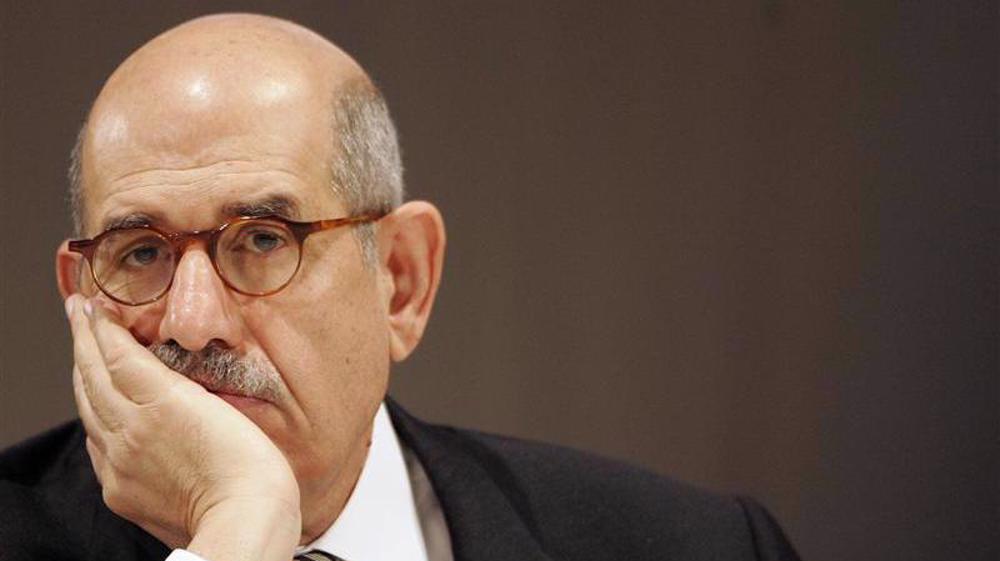

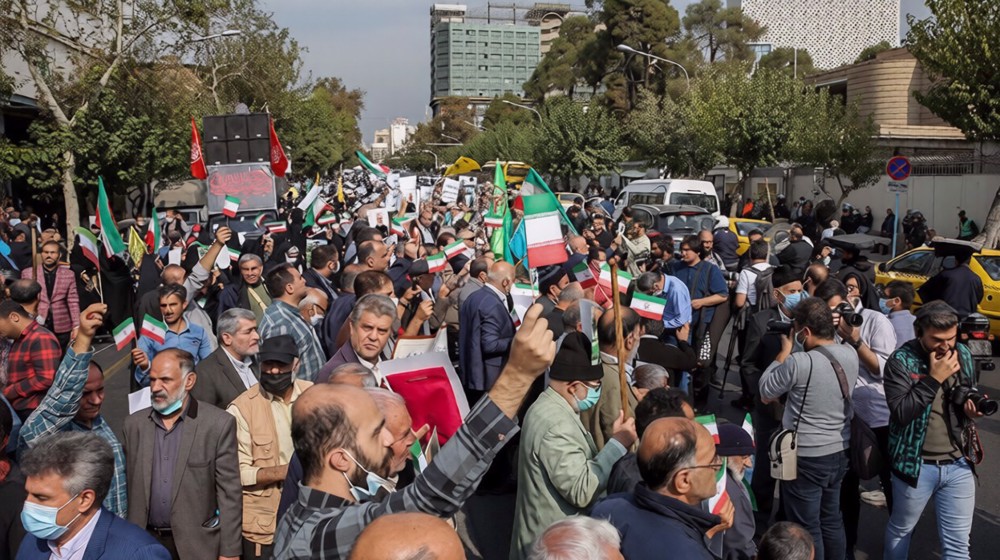



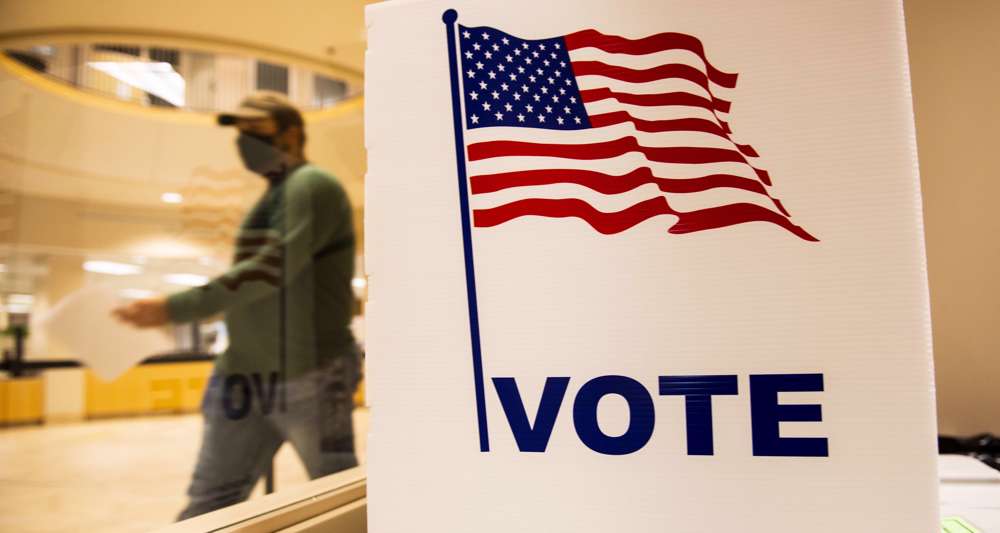

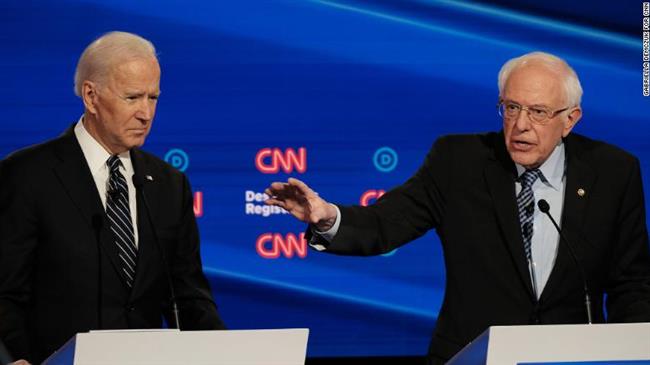


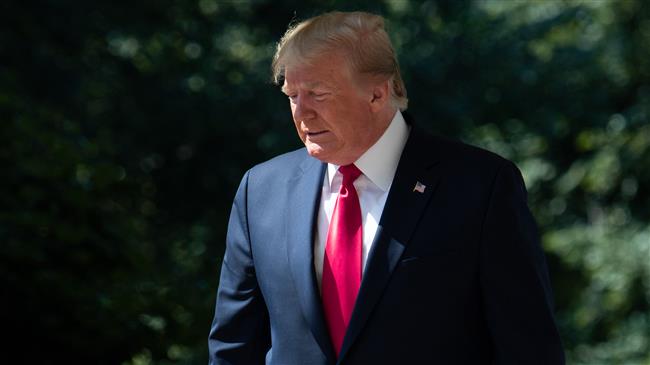

 This makes it easy to access the Press TV website
This makes it easy to access the Press TV website